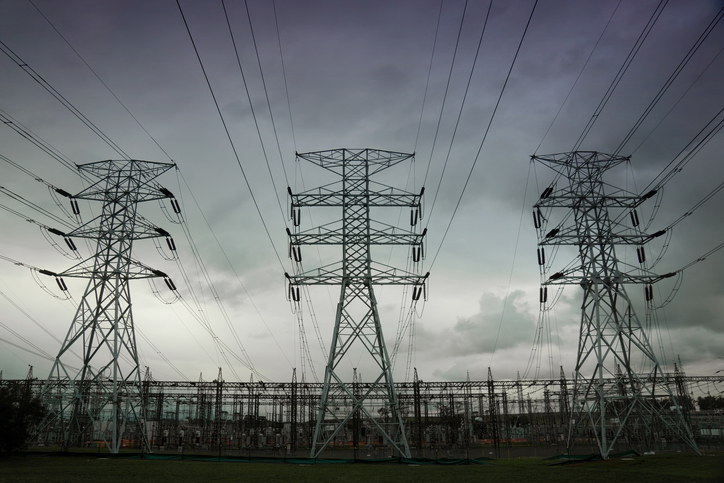Ofgem’s head of networks has reiterated the regulator’s warning to operator companies that they should expect tougher price controls after pointing to “double digit returns” deemed too high within current market conditions.
Jonathan Brearley delivered a keynote speech at last week’s Low Carbon Networks and Innovation (LCNI) Conference to an auditorium filled with representatives from network companies and the wider industry.
Outlining Ofgem’s future vision for the market, the senior partner claimed public and political attention has meant value for money for consumers had become a prominent concern.
“The energy sector is being closely watched and I’m sure it cannot escape your attention that the cost of energy has become a highly political and highly discussed issue. And of course you cannot avoid reading some of the concerns people have around network company returns,” he said.
A recent report from the Energy & Climate Intelligence Unit (ECIU) think-tank claimed that network companies’ profit margins added £10 billion to consumer bills in a six-year period, and came hot on the heels of a Citizen’s Advice study which said £7.5 billion in “unjustified profits” had been pocketed in recent years.
Brearley explained that when previous price controls had been set, Ofgem had expected financial performance to vary based on efficiency levels and performance against incentives. However, the current market conditions had proven this to be incorrect.
“All companies in certain sectors are at or close to real double digit returns. At the same time, financial markets have fundamentally changed meaning these returns are very high compared to current market expectations,” he continued.
“Therefore we have already said that current evidence points towards a lower cost of capital and returns being tighter than they have been from 2021 onwards. Therefore network companies need to prepare for this as well as delivering better outcomes for consumers.”
A licence to operate “from society at large”
He added that price controls enacted in 2013 had already secured an additional £4.5 billion worth of savings resulting from a combination of reduced revenues or voluntary contributions, the latter having delivered around £650 million back to consumers.
However, Brearley called out two firms – Northern Gas Networks and Wales and West Utilities, which are both owned by Hong-Kong based infrastructure firm CKI – for failing to make such a contribution.
In a warning to the firms, he said: “It is in their own interest to do so to build public trust and maintain the legitimacy of the regulatory system. Network companies need a licence to operate not just from the regulator but from society at large and the money that we make must be seen as legitimate.”
Ofgem has taken a more proactive role in clamping down on the profits and allowances of network companies since outlining the RIIO-2 price controls scheduled to hit electricity distribution networks in 2023 back in July.
In August a potential combined penalty of £13.9 million was unveiled for distribution network operators (DNOs) in response to under-performance in providing connections to their customers. In addition, £200 million was taken from DNO allowances after the regulator found electricity demand to be “significantly lower” than forecast, meaning less money was spent on grid reinforcements.
Innovation must be “hard-wired into DNA”
Despite this growing landscape of reduced funds for network companies, Brearley was clear that innovation would still be expected to become business as usual and not reliant on funds from Ofgem.
“There is a step change that we still need to make. For the time being, we want to see batter value for consumers in innovation programmes and greater collaboration between network companies. In subsequent price controls we want to see companies use innovation as part of everyday working practices…rather than solely relying on incentive programmes run by the regulator,” he said.
“We need to see a continued culture change within companies so we move from a world where we have moderate innovation to one where it’s hard-wired into your DNA, and that’s not just for the industry but includes the regulator as part of that.
“We should also see innovation for all of us as a benefit to our own business and a source of both new opportunities and new revenue streams because as this industry changes, the things that we do will change also.”
His comments echoed those made by Robert Symons, chief executive of Western Power Distribution, who said in his speech earlier in the day that all the lessons learned in the past and those in the future will need to be “integrated into the very fibre of our companies”.
“We need to innovate to not only meet the challenges of the pace of change in our market but also to ensure we’re agents of change ourselves. Innovation needs to become business as usual, that is the key to building on our track record of delivering for households, businesses, and communities,” he added.





